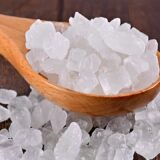Ayurvedic Medicine for Cholesterol: A Remedy You Should Try
Cholesterol is a waxy substance that is vital for many bodily functions. Produced primarily by the liver, it makes up about 75% of the cholesterol needed for processes such as building cell membranes, synthesizing hormones, and producing vitamin D. The remaining 25% comes from dietary sources, such as animal products and certain fats. 
Despite its reputation, cholesterol is essential for maintaining overall health, playing a critical role in the formation of bile acids that aid in digestion. However, maintaining a balance is key. While cholesterol is necessary, too much can lead to health issues, including cardiovascular disease.
There are two main types of cholesterol: LDL (low-density lipoprotein), often referred to as “bad” cholesterol, and HDL (high-density lipoprotein), known as “good” cholesterol. A healthy lifestyle, including a balanced diet and regular exercise, can help manage cholesterol levels and reduce the risk of related health problems.
Why Do We Need Cholesterol?
Cholesterol is indeed a crucial substance for various bodily functions. Here’s a key role:
- Building Vitamin D: Cholesterol is a precursor for vitamin D synthesis, which is vital for bone health and immune function.
- Producing Cell Membranes: It helps maintain the structure and fluidity of cell membranes, allowing for proper cell function and communication.
- Making Digestive Fluids: Cholesterol is essential for the production of bile, which aids in the digestion and absorption of fats.
- Producing Hormones: It plays a critical role in the synthesis of several hormones, including testosterone, estrogen, and cortisol, which are important for various physiological processes.
While cholesterol is necessary for health, it’s important to maintain a balance, as too much can lead to health issues like cardiovascular disease.
Ayurveda View On Cholesterol
Ayurveda offers a distinct view on cholesterol, contrasting with Western medicine. In this holistic framework, cholesterol is essential for maintaining the body’s circulatory channels, known as “shrotas.” These channels transport nutrients to cells and remove waste, ensuring optimal body function. Larger shrotas, such as veins and arteries, must remain flexible to support healthy blood flow.
Cholesterol plays a vital role in lubricating these shrotas, especially the delicate pranavahi shrotas that nourish the brain. This lubrication is crucial for maintaining the integrity and flexibility of the circulatory system, promoting overall health.
Thus, Ayurveda emphasizes a balanced approach to cholesterol, acknowledging its significance in enhancing both physical and mental well-being.
High Cholesterol: An Ayurvedic Perspective
In Ayurveda, high cholesterol, or dyslipidemia, is associated with a condition called Medovriddhi, which indicates an excess of body fat. This imbalance is often linked to a diet high in unhealthy fats (Snighdha, Guru, Pichhila) and a sedentary lifestyle. According to Ayurvedic principles, this excess can disrupt the body’s natural balance and lead to various health issues.
Ayurveda emphasizes the importance of maintaining healthy circulatory channels, known as “shrotas.” When these channels become obstructed by excess cholesterol, it can impair the body’s ability to transport nutrients and waste effectively. Ayurvedic treatments focus on restoring balance through dietary modifications, lifestyle changes, and herbal remedies.
Common Ayurvedic remedies for managing high cholesterol include Arogyavardhani Vati, Triphala Guggulu, and Shilajatvadi Loha. These formulations aim to support lipid metabolism, reduce excess fat, and promote overall cardiovascular health, ultimately helping to maintain a harmonious state of well-being.
Ayurvedic Recommendations for Cholesterol Management
Ayurveda offers a holistic approach to managing cholesterol levels through diet, herbal remedies, lifestyle changes, and therapeutic treatments.
1. Diet: A balanced diet is fundamental. Focus on whole grains, fresh fruits, vegetables, legumes, and lean proteins while avoiding processed foods, fried items, excessive salt, and sugar. This helps maintain optimal cholesterol levels.
2. Herbal Remedies: Key herbs include:
- Arjuna (Terminalia arjuna): Known for its cardioprotective properties, it may help lower cholesterol.
- Guggul (Commiphora mukul): Often used to reduce bad cholesterol (LDL) and increase good cholesterol (HDL).
- Triphala: A blend of three fruits (Amalaki, Bibhitaki, and Haritaki), believed to support cholesterol management and overall wellness.
3. Lifestyle Recommendations: Incorporate regular exercise, such as walking, jogging, or yoga, for at least 30 minutes daily to boost metabolism. Stress management techniques like meditation and deep breathing can also help lower cholesterol levels, as stress contributes to dyslipidemia. Maintaining a healthy weight is crucial, as excess weight can exacerbate cholesterol issues.
4. Ayurvedic Treatments: Consider therapies like Panchakarma, a detoxification process that eliminates toxins and promotes health, and Abhyanga, an Ayurvedic massage with warm herbal oils, which enhances circulation and reduces stress, supporting overall well-being.
Ayurvedic Medicine for Cholesterol Management:
According to the ayurvedic aspect, the formation of cholesterol does not necessarily need to be reduced, but it requires to be balanced. When digestion is well-balanced, and in good condition then the body generates the right amount of cholesterol, in the right portion to nourish the body.
Ayurveda advises you to contain all tastes, sweet, sour, salty, pungent, bitter, and astringent at least one dinner each day, to help balance unnatural appetites. Here are 10 foods that can help you to lower cholesterol.
1. Arjuna (Terminalia arjuna)
Arjuna is a revered herb in Ayurveda, known for its cardioprotective effects. It contains powerful antioxidants that help combat oxidative stress, which can damage blood vessels.
Traditionally used to strengthen heart muscles and improve circulation, Arjuna is believed to support healthy blood pressure levels and overall heart function. Its bark is particularly prized for its beneficial properties.
How to Use:
- Powder: Take 1 teaspoon of Arjuna powder mixed with warm water or milk, twice daily.
- Tea: Boil Arjuna bark in water, strain, and drink as tea once or twice daily.
2. Guggul (Commiphora mukul)
Guggul is a resin extracted from the Mukul myrrh tree and is highly valued in Ayurvedic medicine for its lipid-lowering effects. It contains active compounds called guggulsterones, which have been shown to reduce LDL cholesterol and triglycerides while increasing HDL cholesterol.
Guggul is also believed to possess anti-inflammatory properties, contributing to overall cardiovascular health and supporting weight management.
How to Use:
- Capsules: Follow the dosage instructions on the label (typically 500 mg, twice daily).
- Powder: Mix 1 teaspoon of Guggul powder with honey or warm water, taken twice daily.
3. Triphala
Triphala is a traditional Ayurvedic formulation consisting of three fruits: Amalaki (Indian gooseberry), Bibhitaki, and Haritaki. Each component offers unique health benefits, and together they support digestion, detoxification, and overall well-being.
Triphala is rich in antioxidants and is believed to help lower cholesterol levels by improving metabolism and promoting healthy bowel movements, thereby facilitating the elimination of excess fats from the body.
How to Use:
- Powder: Take 1 teaspoon mixed with warm water before bedtime.
- Tablets: Follow the dosage instructions on the label.
4. Turmeric (Curcuma longa)
Turmeric is renowned for its active compound, curcumin, which has potent anti-inflammatory and antioxidant properties. It has been widely studied for its potential to reduce cholesterol levels and improve heart health.
Turmeric may help inhibit the oxidation of LDL cholesterol, a key factor in heart disease. Additionally, it supports healthy blood circulation and may enhance the overall functioning of the cardiovascular system.
How to Use:
- Powder: Add ½ teaspoon of turmeric powder to warm milk or water, taken daily.
- Capsules: Follow the dosage on the label (typically 400-600 mg, 1-3 times daily).
5. Garlic (Allium sativum)
Garlic is not only a flavorful culinary ingredient but also a powerful medicinal herb. It contains allicin, a compound that is responsible for many of its health benefits, including lowering total cholesterol and LDL cholesterol levels.
Garlic is also known to improve circulation, reduce blood pressure, and possess antibacterial and antiviral properties, making it beneficial for overall health and wellness.
How to Use:
- Raw: Eat 1-2 raw garlic cloves daily, crushed or chopped for maximum effect.
- Supplement: Use garlic capsules as per the instructions on the label.
6. Coriander (Coriandrum sativum)
Coriander, both in seed and leaf form, is rich in antioxidants and has been shown to help lower cholesterol levels. It contains essential oils that may help in reducing inflammation and promoting cardiovascular health.
Coriander also supports digestion, which can aid in overall metabolic health, making it a valuable addition to an Ayurvedic diet.
How to Use:
- Seeds: Add 1 teaspoon of crushed coriander seeds to your meals or drink as tea.
- Cilantro: Use fresh coriander leaves in salads, soups, or cooking for added flavor and health benefits.
7. Brahmi (Bacopa monnieri)
Brahmi is celebrated for its cognitive-enhancing properties and is often used to support mental clarity and focus. In addition to its brain-boosting benefits, Brahmi is believed to promote heart health by helping to manage cholesterol levels and reduce stress.
Chronic stress is a risk factor for high cholesterol, so Brahmi’s adaptogenic qualities may indirectly support cardiovascular health.
How to Use:
- Powder: Take 1 teaspoon of Brahmi powder mixed with honey or water, twice daily.
- Capsules: Follow the recommended dosage on the label.
8. Fenugreek (Trigonella foenum-graecum)
Fenugreek seeds are rich in soluble fiber, which can help lower cholesterol levels by binding to bile acids and facilitating their excretion.
This process encourages the liver to use cholesterol to produce more bile acids, thus reducing overall cholesterol levels. Additionally, fenugreek has been shown to improve insulin sensitivity, which is beneficial for metabolic health.
How to Use:
- Seeds: Soak 1 teaspoon of fenugreek seeds in water overnight, then chew them in the morning.
- Powder: Mix 1 teaspoon of fenugreek powder into smoothies or meals.
9. Psyllium (Plantago ovata)
Psyllium is a soluble fiber derived from the seeds of the Plantago ovata plant. It is well-known for its ability to support digestive health and lower cholesterol levels.
By absorbing water in the intestines, psyllium forms a gel-like substance that helps trap and eliminate excess cholesterol. Regular consumption can also promote healthy bowel movements and support weight management.
How to Use:
- Powder: Mix 1 tablespoon of psyllium husk with water or juice, taken once daily.
- Capsules: Follow the dosage on the label for convenient use.
10. Ashwagandha (Withania somnifera)
Ashwagandha is a powerful adaptogen that helps the body manage stress and maintain balance. Chronic stress can negatively impact cholesterol levels, so Ashwagandha’s stress-reducing properties are beneficial for cardiovascular health.
Additionally, it may support overall well-being by enhancing energy levels and improving endurance, contributing to a more active lifestyle that promotes healthy cholesterol levels.
How to Use:
- Powder: Take 1 teaspoon of Ashwagandha powder mixed with warm milk or water, once or twice daily.
- Capsules: Follow the recommended dosage on the label.
Lifestyle to Manage Cholesterol Levels
Below are some Lifestyle tips that can help manage cholesterol levels and promote overall cardiovascular health:
1. Balanced Diet
- Focus on Whole Foods: Incorporate whole grains, fresh fruits, vegetables, legumes, and lean proteins. These foods are high in fiber, which can help lower cholesterol.
- Limit Saturated and Trans Fats: Reduce intake of red meat, full-fat dairy products, and processed foods. Choose healthier fats, such as olive oil and avocados.
- Increase Omega-3 Fatty Acids: Include sources of omega-3s, such as fatty fish (salmon, mackerel), walnuts, and flaxseeds, which can improve heart health.
2. Regular Exercise
- Aim for 30 Minutes a Day: Engage in physical activities such as walking, jogging, swimming, or cycling most days of the week. Exercise can help raise HDL (good) cholesterol and lower LDL (bad) cholesterol.
- Incorporate Strength Training: Include resistance training exercises at least twice a week to build muscle and improve metabolic health.
3. Weight Management
- Achieve and Maintain a Healthy Weight: Losing even a small amount of weight can significantly improve cholesterol levels. Focus on gradual, sustainable weight loss through healthy eating and regular exercise.
4. Stress Management
- Practice Relaxation Techniques: Engage in activities such as meditation, deep breathing exercises, or yoga to reduce stress. Chronic stress can negatively impact cholesterol levels.
- Prioritize Sleep: Aim for 7-9 hours of quality sleep each night, as poor sleep can lead to increased cholesterol levels.
5. Avoid Smoking and Limit Alcohol
- Quit Smoking: Stopping smoking can improve your HDL cholesterol levels and benefit your heart health overall.
- Limit Alcohol Consumption: If you drink alcohol, do so in moderation. Excessive alcohol can lead to higher cholesterol and triglyceride levels.
6. Stay Hydrated
- Drink Plenty of Water: Staying hydrated helps maintain overall health and can aid in metabolic processes, including lipid metabolism.
7. Regular Health Check-ups
- Monitor Cholesterol Levels: Schedule regular check-ups with your healthcare provider to monitor cholesterol levels and assess overall cardiovascular health.
8. Mindful Eating
- Eat Slowly and Intentionally: Paying attention to what and how much you eat can prevent overeating and help you make healthier food choices.
9. Incorporate Fiber-Rich Foods
- Increase Soluble Fiber Intake: Foods high in soluble fiber, such as oats, beans, lentils, fruits, and vegetables, help lower cholesterol by binding to bile acids.
10. Consider Herbal Supplements
- Consult a Practitioner: If you’re interested in using herbal remedies (such as those mentioned earlier), consult with a healthcare practitioner for personalized recommendations.
Ayurvedic Treatments to Manage Cholesterol Levels
Below are some Ayurvedic treatments that can help manage cholesterol levels and promote overall cardiovascular health:
1. Panchakarma
Panchakarma is a detoxification and rejuvenation therapy that aims to eliminate toxins (ama) from the body. It includes a series of therapeutic procedures designed to cleanse the body and restore balance.
- How It Works: Specific treatments, such as Virechana (therapeutic purgation) and Basti (medicated enemas), may be used to support liver and digestive health, which can influence cholesterol levels.
2. Abhyanga
Abhyanga is a traditional Ayurvedic massage using warm herbal oils. This treatment is believed to improve circulation, reduce stress, and support overall well-being.
- How It Works: Regular Abhyanga sessions can help detoxify the body, improve lipid metabolism, and enhance cardiovascular health by promoting relaxation and circulation.
3. Shirodhara
Shirodhara involves gently pouring warm herbal oil over the forehead in a specific manner. This therapy is deeply relaxing and helps calm the mind.
- How It Works: By reducing stress and anxiety, Shirodhara can indirectly benefit cholesterol levels, as stress is a known factor in dyslipidemia.
4. Herbal Formulations
Various Ayurvedic formulations can be used to support cholesterol management. These include:
- Triphala: A blend of three fruits that aids digestion and detoxification.
- Guggul: Known for its lipid-lowering properties, it can help balance cholesterol levels.
- Arjuna: Supports heart health and helps lower LDL cholesterol.
5. Dietary Recommendations
Ayurveda emphasizes the importance of a balanced diet tailored to individual constitutions (doshas).
- How It Works: Incorporating foods like whole grains, fresh fruits, vegetables, and healthy fats can help lower cholesterol. Avoiding processed and fried foods is also recommended.
6. Yoga and Pranayama
Specific yoga poses (asanas) and breathing exercises (pranayama) can help improve cardiovascular health.
- How It Works: Regular practice enhances circulation, reduces stress, and promotes overall well-being, contributing to healthy cholesterol levels. Poses like Bhujangasana (Cobra Pose) and Setu Bandhasana (Bridge Pose) are particularly beneficial.
7. Meditation
Meditation practices promote mental clarity and relaxation.
- How It Works: Reducing stress through meditation can have a positive impact on cholesterol levels, as stress is a contributing factor to dyslipidemia.
8. Lifestyle Adjustments
Ayurveda encourages maintaining a balanced lifestyle, including regular exercise, adequate sleep, and mindful eating.
- How It Works: These practices support metabolic health and overall well-being, which can help manage cholesterol levels.
9. Specific Herbal Teas
Herbal teas made from ingredients like ginger, cinnamon, and green tea can support heart health.
- How It Works: These herbs contain antioxidants and anti-inflammatory properties that may help lower cholesterol.
10. Consultation with an Ayurvedic Practitioner
Personalized treatment plans based on individual constitution and health status can be developed.
- How It Works: An Ayurvedic practitioner can recommend specific herbs, dietary changes, and lifestyle modifications tailored to your needs for effective cholesterol management.
FAQs
Q1: What is cholesterol, and why is it important?
A1: Cholesterol is a waxy substance produced by the liver and found in certain foods. It is essential for building cell membranes, producing hormones, and synthesizing vitamin D. However, imbalances in cholesterol levels can lead to health issues.
Q2: What are the types of cholesterol?
A2: There are two main types of cholesterol: LDL (Low-Density Lipoprotein), often referred to as “bad” cholesterol, which can lead to plaque buildup in arteries, and HDL (High-Density Lipoprotein), known as “good” cholesterol, which helps remove LDL cholesterol from the bloodstream.
Q3: How does Ayurveda view cholesterol?
A3: Ayurveda views cholesterol as vital for maintaining bodily functions, particularly in lubricating the body’s circulatory channels (shrotas). It emphasizes balance, as both excess and deficiency can lead to health issues.
Q4: What dietary changes can help manage cholesterol levels?
A4: Focus on a balanced diet rich in whole grains, fruits, vegetables, legumes, and healthy fats. Limit saturated and trans fats, and increase intake of omega-3 fatty acids from sources like fish, walnuts, and flaxseeds.
Q5: What Ayurvedic herbs are effective for cholesterol management?
A5: Some effective herbs include Arjuna, which supports heart health and lowers LDL cholesterol; Guggul, which reduces LDL while increasing HDL cholesterol; and Triphala, which aids digestion and detoxification, potentially lowering cholesterol.
Q6: How can lifestyle changes impact cholesterol levels?
A6: Regular exercise, maintaining a healthy weight, managing stress, and avoiding smoking can significantly improve cholesterol levels. Incorporating these changes alongside dietary adjustments can lead to better heart health.
Q7: What are some Ayurvedic treatments for cholesterol management?
A7: Treatments include Panchakarma, a detoxification therapy; Abhyanga, an Ayurvedic massage for circulation; and herbal formulations like Triphala and Guggul to support cholesterol balance.
Q8: How can herbal teas aid in managing cholesterol?
A8: Herbal teas like ginger, cinnamon, and green tea have antioxidant properties that may help lower cholesterol levels and support heart health. They can be easily incorporated into daily routines for added benefits.
Q9: Should I consult a healthcare provider before starting Ayurvedic treatments?
A9: Yes, it’s essential to consult with a healthcare practitioner or an Ayurvedic specialist to ensure that the treatments and herbs are appropriate for your individual health needs and conditions.
Q10: How often should I monitor my cholesterol levels?
A10: It’s recommended to check cholesterol levels at least once every 4-6 years for adults. If you have risk factors for heart disease, more frequent monitoring may be necessary. Always follow your healthcare provider’s advice.
Ayurvedic treatments focus on restoring balance and promoting holistic well-being. Always consult with a qualified Ayurvedic practitioner to design a personalized plan that suits your individual health needs.


























Natural remedies are best for health. As these remedies are natural as well as very effective which give long lasting results without any side effects. For lowering cholesterol these are best remedies which are very effective as well has other health benefits.
The American Heart Association recommends that the cholesterol levels of individuals above 20 years of age must be checked every five years.